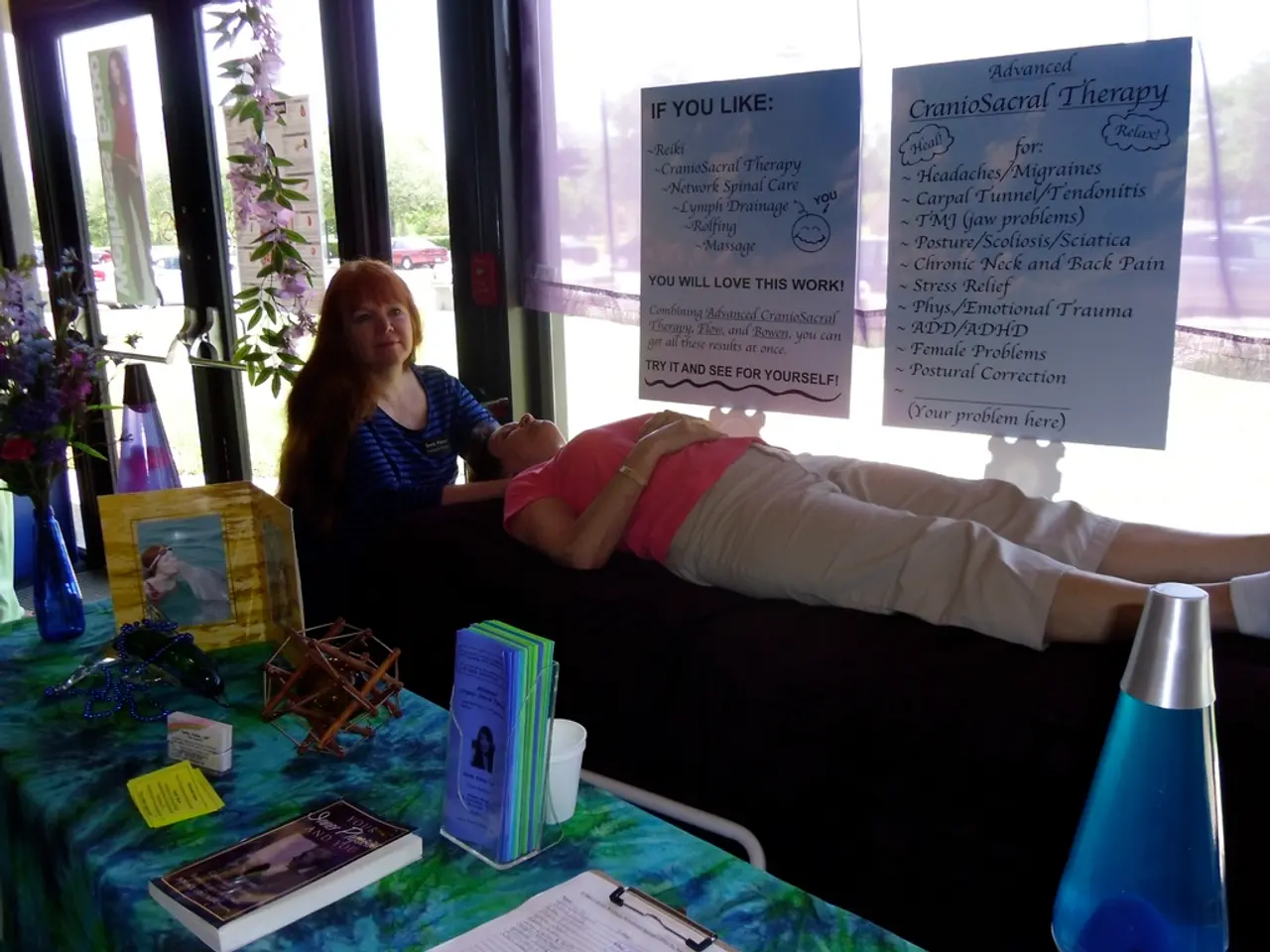Exploring Unconventional Methods for Melanoma: A Look at Their Efficacy
Alternative Treatments for Melanoma: A Complementary Approach to Cancer Care
Melanoma, a type of skin cancer, is a serious health concern. While conventional treatments like immunotherapy, targeted therapy, and surgery have shown significant effectiveness [1][2][5], alternative treatments can offer supportive, holistic, and personalized care that may improve quality of life and reduce side effects.
The landscape of alternative treatments for melanoma is diverse, encompassing practices such as nutrition therapy, herbal medicine, massage, meditation, and yoga [4]. For instance, the Mediterranean diet, focusing on whole grains, fresh fruits and vegetables, and limiting meat products, has several benefits for melanoma patients [6]. Similarly, massage can help a person relax and relieve stress related to a cancer diagnosis, potentially improving their quality of life during treatment [2].
However, it is crucial to approach alternative treatments with caution. The effectiveness of these methods varies widely, and they have not been proven to shrink tumors or improve survival on their own [3]. For example, while ginger (Zingiber officinale Roscoe) and turmeric (Curcuma longa) are known for their anticancer properties, their role in the treatment of melanoma requires further research [7].
Moreover, the interactions between herbal remedies and conventional treatments can be complex, so people should use them cautiously [3]. The Food and Drug Administration (FDA) has warned against using creams or salves that claim to treat melanoma, such as Black Salve, as these claims are false and dangerous [8].
Patients should always consult a doctor before trying alternative treatments. This consultation can help people navigate the world of alternative treatments safely and effectively. By evaluating the credentials and experience of practitioners, potential risks, benefits, costs, and accessibility, and determining how alternative therapies can be safely combined with standard care, doctors can ensure that alternative treatments are used in a way that complements, rather than replaces, evidence-based medical therapies for melanoma [3].
Early referral to specialized centers that conduct clinical trials or offer advanced immunotherapies is critical, especially for patients with advanced or treatment-resistant melanoma [5]. In summary, alternative treatments may complement but should not replace evidence-based medical therapies for melanoma. Consulting a qualified doctor—ideally a melanoma specialist—is essential before trying any alternative approach to ensure safe and coordinated care.
References:
- Larkin J, et al. Nivolumab plus ipilimumab versus ipilimumab in untreated melanoma. N Engl J Med. 2015;373:1823-1834.
- Long GV, et al. Immune checkpoint inhibitors in the treatment of melanoma. Nat Rev Clin Oncol. 2016;13:700-713.
- National Cancer Institute. Complementary and Alternative Medicine in Cancer. Available at: https://www.cancer.gov/about-cancer/treatment/cam
- National Comprehensive Cancer Network. Melanoma: Prevention and Early Detection, Version 2.2021. Available at: https://www.nccn.org/professionals/physician_gls/pdf/melanoma_prevention.pdf
- National Comprehensive Cancer Network. Melanoma: Treatment Guidelines, Version 2.2021. Available at: https://www.nccn.org/professionals/physician_gls/pdf/melanoma.pdf
- Wong AK, et al. The Mediterranean diet and cancer: a systematic review. Nutr Rev. 2016;74:485-508.
- Cheng Y, et al. Ginger (Zingiber officinale Roscoe) and cancer: a review of preclinical and clinical evidence. Nutr Cancer. 2015;67:1101-1110.
- Food and Drug Administration. FDA warns against using Black Salve to treat cancer. Available at: https://www.fda.gov/consumers/consumer-updates/fda-warns-against-using-black-salve-treat-cancer
- In the landscape of alternative treatments for melanoma, herbal supplements like ginger and turmeric, known for their anticancer properties, have a role that requires further scientific research.
- Apart from herbal supplements, other alternative therapies such as massage therapy can potentially improve the quality of life for melanoma patients by helping them relax and relieve stress.
- When considering alternative treatments, patients should consult a nutritionist to understand how these methods can be safely combined with standard care, and how they might impact nutrition due to the diverse benefits and potential risks associated with various therapies.
- While each person's health-and-wellness journey is unique, it's essential to approach alternative treatments with caution and vigilance, as the Food and Drug Administration has warned against using unproven treatments like Black Salve to treat melanoma due to false claims and potential dangers.




